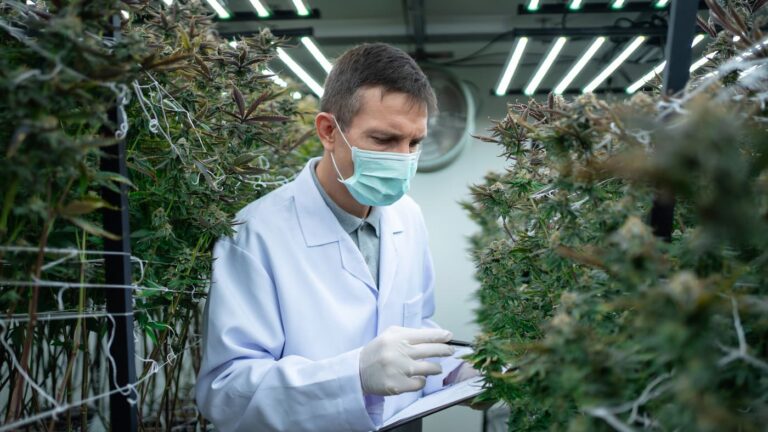Cannabis and Autoimmunity: Do they mix?

While cannabis helps many with pain, sleep issues, epilepsy, or other conditions, we have noticed that it can increase inflammation in some of our autoimmune patients.
Does this mean cannabis is inflammatory? Since autoimmune triggers and remission strategies vary from person to person, and research shows cannabis can be both inflammatory and anti-inflammatory, the answer is, “it depends.”
(However, individuals who become addicted to cannabis exhibit higher inflammatory markers.)
We also found that two patterns emerged among our patient population:
- Many people with autoimmunity are at higher risk for food and chemical sensitivities, and we have seen some patients with an allergy or intolerance to cannabis.
- Out of more than 1,000 cannabis strains, some have been found to activate inflammatory T-cells, worsening an autoimmune response. Currently, there’s no way to identify which ones those are.
Typically, the best strains for pain and inflammation have a higher CBD to THC ratio (CBD is the cannabis compound best known for reducing pain and inflammation). CBD alone can be anti-inflammatory for many people, while THC is more often inflammatory, based on our clinical observations.
Cardiovascular risks
Research shows that regular cannabis users have a 25 percent higher risk of a heart attack and a 42 percent higher risk of a stroke. Cannabis has been shown to increase heart rate, cause irregular heart rhythms, and impact blood pressure stability. When researchers considered “the junk food munchies” and the plant’s sedating effects, the risks lessened but did not entirely disappear.
Hyper-potent strains
The concentration of THC in today’s cannabis has increased dramatically since the 1980s, causing more risk of dependence and more acute health impacts, for better or for worse. Those who are already sensitive may find modern strains too potent or dysregulating.
Brain-health concerns
Research shows cannabis users have a 1.5 times higher risk of dementia and significantly increased rates of psychosis and anxiety. Autoimmunity and Hashimoto’s often come with brain fog and memory loss, requiring diligent brain care. Cannabis may work against you in these areas, most likely due to its potential inflammatory effects.
You are the best judge of what does and doesn’t work for you
The “it depends” answer is frustrating when you want clear answers on what to do for your health. Some things, like industrialized foods, sedentary lifestyles, and toxins, are unhealthy for us all.
But when it comes to the many choices we make throughout each day, autoimmunity and other chronic health conditions demand that we become the authorities of our own bodies and care. I hope this information helped give you more context on whether cannabis aligns with your health goals.
Related Articles

Prescribing and Expanded Options New to RedRiver Health and Wellness
For years, Red River Health and Wellness has been known for helping complex, chronic, and…
[ READ MORE ]

How to age well — tips for longevity
Have you noticed that some older people are still able to stay active and lucid…
[ READ MORE ]

Too MUCH iron is inflammatory
When we think about iron and health, most people assume any iron disorder is iron-deficient…
[ READ MORE ]
